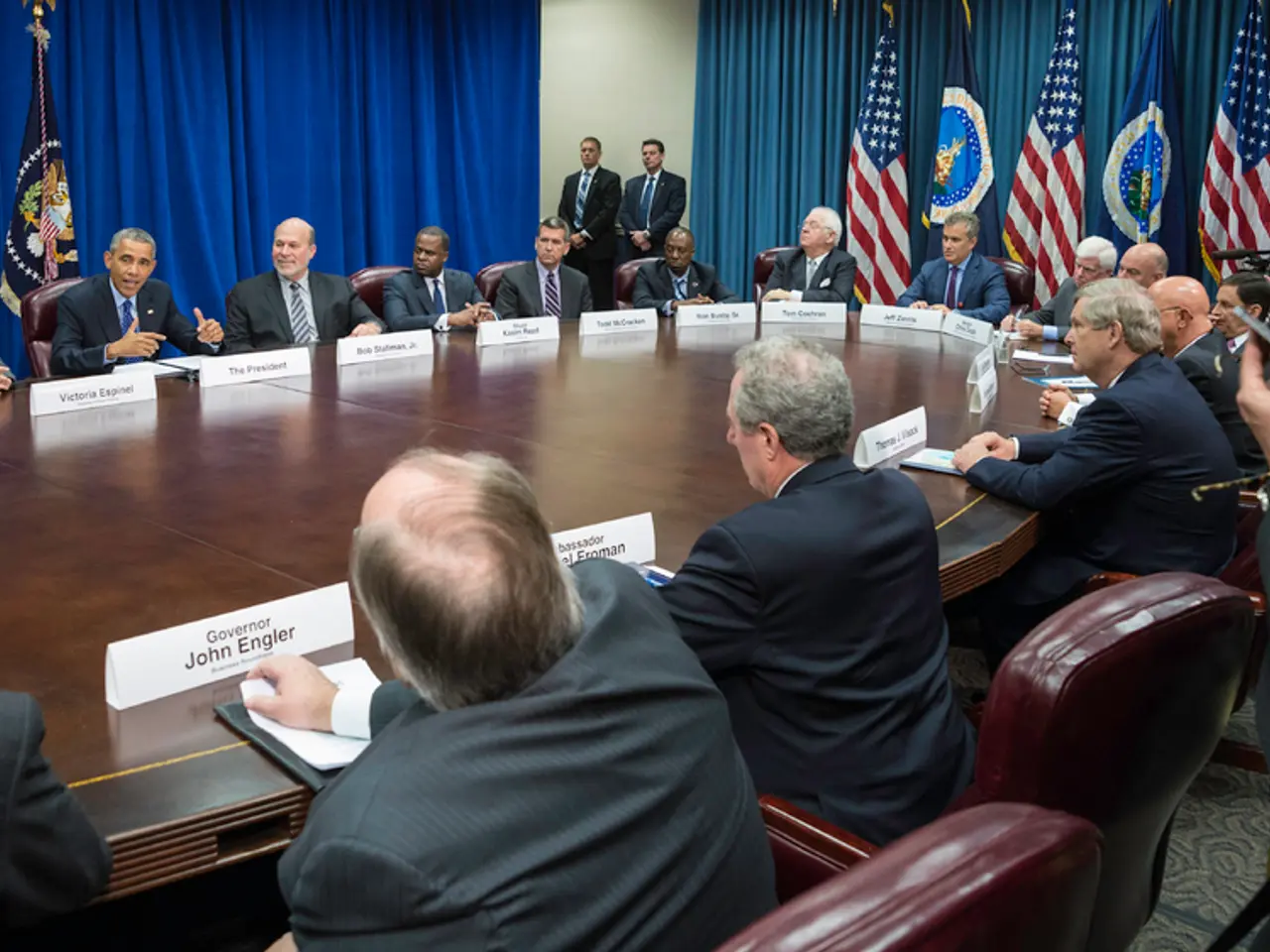Judge appointment process sought by Woidke
Germany's Federal Constitutional Court Appointment Stalemate Persists
The appointment of three judges for Germany's Federal Constitutional Court remains in limbo, as political divisions within the Bundestag continue to hinder progress. Brandenburg's Minister President Dietmar Woidke (SPD) has called for a fresh start to resolve the dispute.
The crux of the issue revolves around the nomination of Frauke Brosius-Gersdorf, proposed by the SPD. Brosius-Gersdorf, a constitutional law expert, has been the subject of controversy due to her perceived stance on certain issues, particularly abortion. Her nomination has faced resistance from within the Union, primarily due to reservations about her liberal stance on the topic.
Woidke has proposed a new approach, suggesting that all candidates from the previous process could stand for election in a new one. He has also urged all parties to involve the opposition parties, specifically the Left party and the Greens, in the discussions. Woidke believes that the parties needed for a two-thirds majority in the Bundestag should be involved early on in the process.
The Union has nominated federal labor court judge Günter Spinner as an alternative candidate, but the SPD has yet to respond. The SPD had initially proposed constitutional law expert Ann-Katrin Kaufhold as an alternative to Brosius-Gersdorf, but no further action has been taken since.
The stalemate is a reflection of deep political and ideological differences within Germany's governing coalition and between parties. The Union opposes Brosius-Gersdorf's views related to abortion, which they consider too progressive or radical. This has complicated reaching a consensus necessary for filling the court vacancies.
Woidke's proposal excludes the AfD from the negotiations, and he has urged all parties to reach an agreement quickly. The election of judges for the Federal Constitutional Court is a crucial step in maintaining the balance of power and upholding the rule of law in Germany.
The delay in the parliamentary vote, originally scheduled for mid-July 2025, has caused a postponement. As the situation continues, the future of the Federal Constitutional Court hangs in the balance, with the hope that a resolution can be found to ensure the court's continued independence and effectiveness.
[1] Source: Various news outlets and official statements.
- The stalemate over the appointment of three judges for Germany's Federal Constitutional Court is deeply entwined with policy-and-legislation issues, particularly the nomination of Frauke Brosius-Gersdorf, which has been met with opposition due to her perceived stance on abortion.
- The delay in the election of judges for the Federal Constitutional Court has escalated into a political crisis, with the issues of policy-and-legislation and politics at the heart of the dispute, as parties struggle to reach a consensus that ensures the court's independence and effectiveness.







